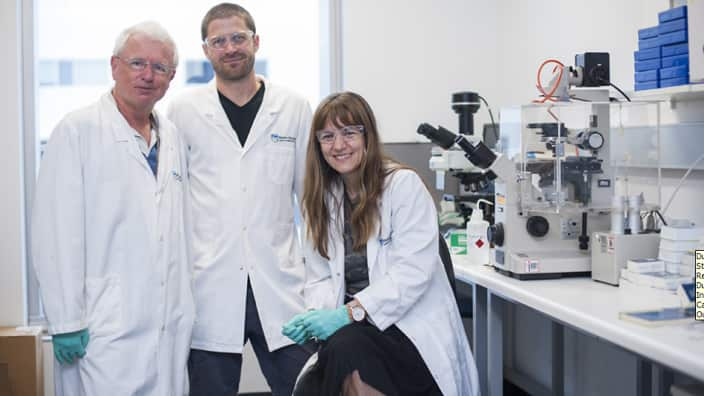Source: Walter and Eliza Hall Institute of Medical Research
The findings revealed a special group of genes that function in the body’s normal DNA repair process were critical to the effectiveness of p53. This new information could help doctors to better identify patients with an increased risk of developing certain cancers. It could also help to develop safer, more effective treatments for patients.
Dr Ana Janic, Associate Professor Marco Herold and Professor Andreas Strasser from the Walter and Eliza Hall Institute led the study, published today in Nature Medicine.
"It was the first time a study had explained how p53 was able to prevent cancer growth", said Dr Janic for SBS Serbian .
"We discovered that the DNA repair gene MLH1and additional DNA repair genes, are critical to p53’s ability to prevent the development of B-cell lymphomas,” Dr Janic said.
“Now that we understand the significance of MLH1 and other DNA repair factors, we can begin to find ways of identifying the vulnerabilities that their loss may impose on cancer cells with the aim of exploiting these for therapeutic benefit. The next steps would be to see if the DNA repair process had the same cancer-blocking impact on cancers other than lymphoma, such as pancreatic and colon cancers,” Dr Janic said.
“p53 is mutated in close to 70 percent of colon and pancreatic cancers, so this discovery could have a significant impact on understanding these diseases. We are therefore keen to test whether genes involved in the DNA repair process might also play a role in helping p53 prevent the development of these cancers,” she said.
This work was supported by the Australian National Health and Medical Research Council, Cancer Council Victoria, Australian Phenomics Network, Cancer Australia, the Leukemia & Lymphoma Society of America, Marie Curie Actions and Beatriu de Pinos, and the Lady Tata Memorial Trust. Dr Ana Janic, Associate Professor Marco Herold and Professor Andreas Strasser from the Walter and Eliza Hall Institute led the study, published in Nature Medicine. ( Photo Provided)
Dr Ana Janic, Associate Professor Marco Herold and Professor Andreas Strasser from the Walter and Eliza Hall Institute led the study, published in Nature Medicine. ( Photo Provided)





